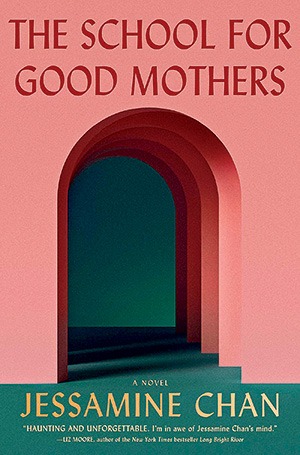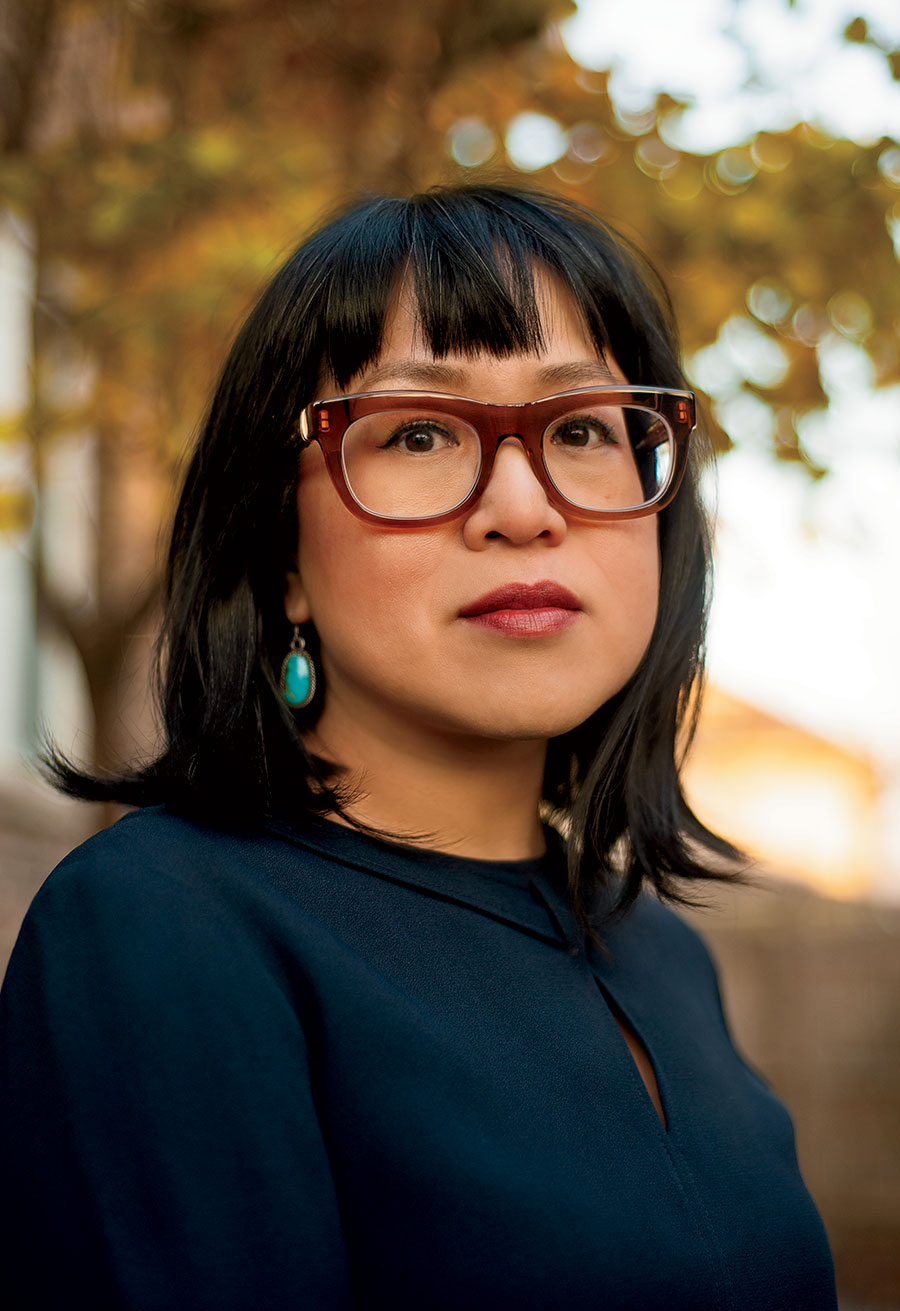Even just reading about parenting can be exhausting. The compensatory pleasures — the tenderness of a child’s embrace, the excitement of first steps and first words, the depth of unconditional love — don’t really come through on the page. But the drudgery of parenting, with its repetitive tasks and seemingly unrelenting demands, is far easier to convey.

The case of 39-year-old Frida Liu, the intermittently sympathetic protagonist of Jessamine Chan’s debut novel, The School for Good Mothers (Simon & Schuster), is complicated by her personal and career struggles. Her marriage to Gust, a man she still loves, has combusted over his infidelity, and his departure leaves her devastated and scrambling for income. And though Gust (aided by his younger, health-obsessed girlfriend, Susanna) shares custody of their 18-month-old daughter, Harriet, Frida’s time alone with the toddler drains her.
After too many sleep-deprived nights, the harried telecommuting mother has what she describes as “one very bad day.” Leaving Harriet secured in a device called an ExerSaucer, she runs out for coffee and a file from her office. She doesn’t intend to linger, but relishing her rare freedom, she stays away for hours — and an unidentified neighbor reports her daughter’s howls to the authorities.
Welcome to Chan’s dystopian surveillance state. “It’s not like there’s any privacy anymore,” Frida’s ineffectual attorney tells her. “They’ll be watching you.” What may be most chilling about the society Chan envisions is that it seems so close to our own. Frida and her intimates inhabit familiar Philadelphia neighborhoods, name-check the city’s most popular restaurants, and fuss over their smartphones like the rest of us. (Chan lives in Philadelphia with her husband and daughter but grew up in Oak Park; Frida is from Evanston. The author, like her character, is the daughter of Chinese immigrants and holds degrees from Brown and Columbia.)
In Chan’s fictive Philadelphia, perfect motherhood is not just an ideal backed by social norms. It is the law, enforced with increasing rigor. Fathers count but are held to less exacting standards. Race remains an issue, too, with fissures and anxieties resembling our own. Social workers loom as figures of Dickensian horror, tormenting mothers rather than aiding motherless children.
After Frida’s misstep, Harriet is placed with her father, and every room in Frida’s home, save for her bathroom, is equipped with a camera to permit 24-hour observation of her emotions and behavior. There are court appearances, consent forms, other vestiges of judicial normalcy. But there is no real appeal. “We’re going to fix you, Ms. Liu,” a judge says. We’ve entered the terrifying territory of George Orwell’s 1984 and Margaret Atwood’s The Handmaid’s Tale — or present-day Texas, where women’s bodies are controlled by the state, and vigilante justice has been enshrined into law.
In Chan’s novel, matters will only get worse. Frida’s optimism about her fate is naive. To recover her maternal rights, she must submit to the tutelage of a new experimental school whose aim is to remediate her failings. This isn’t exactly a prison; it’s the transformed campus of a bankrupt liberal arts college. But there are uniforms, curfews, required routines — and an electrified fence. If the mothers don’t perform well, they will lose their children. And if they reveal the school’s secrets, their names will be added to the Negligent Parent Registry.
At the school, mothers are identified by their crimes — abandonment, neglect, physical abuse, even complaining too much about their children on social media. One has been sanctioned for “coddling” her teenage son, including cutting up his food and helping him shave.
These errant mothers must now practice their parenting skills on robot dolls, whose internal cameras will assess their every move. “The doll will record where the mother’s hands are placed, will detect tension in her body, her temperature and posture, how often she makes eye contact, the quality and authenticity of her emotions,” Chan writes. Though filled with blue liquid, and sometimes needing repair, the dolls are eerily lifelike, articulate, volatile, and capable of learning.
Frida and the other mothers march through a series of parenting units, competing with one another to win coveted phone calls home. They practice nurturing their dolls, engaging them in play, protecting them from danger. They recite mantras such as “I am a bad mother, but I am learning to be good” — indoctrination with echoes of the Chinese Cultural Revolution. “A mother is always patient. A mother is always kind. A mother is always giving,” the instructors preach. As the mothers struggle to confirm, the rules keep changing.
Counselors and social workers rate the mothers’ chances — never very promising — of getting their children back. In the absence of their children, the mothers become attached to their dolls.
As one might expect, cliques and enmities develop, often along racial lines. So do romances, spurred by contact with the men at a similar (though less stringent) school for fathers. Much as she misses her daughter, the resolutely imperfect Frida is also starved for male attention. (Sex is always a wild card in Chan’s world.) Frida can be reckless. This is a core trait that will not change, however much social engineering she endures. And it makes the book’s not entirely surprising ending inevitable.
The first third or so of Chan’s novel is much as advertised — a gripping page-turner that keeps readers hooked with crisp prose, plot twists, and the author’s visionary despair. The situation deteriorates, the threat crescendos. But then the narrative pace slows. The tasks the mothers must take on begin to seem repetitive, and so, too, the harsh consequences of failure.
Over time, the grim outcome of Frida’s case seems all but certain. Can there be any escape, really, from this dark mirror image of motherhood?



